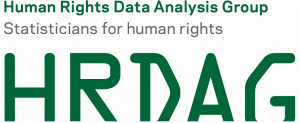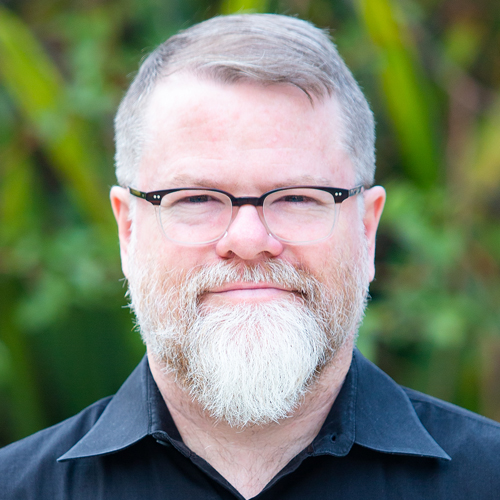Patrick Ball has spent more than twenty-five years conducting quantitative analysis for truth commissions, non-governmental organizations, international criminal tribunals, and United Nations missions in El Salvador, Ethiopia, Guatemala, Haiti, South Africa, Chad, Sri Lanka, East Timor, Sierra Leone, South Africa, Kosovo, Liberia, Perú, Colombia, the Democratic Republic of Congo, and Syria.
Patrick began working in the human rights field in El Salvador in 1991. From 1993 to 2003, he worked in several capacities in the Science and Human Rights Program at the American Association for the Advancement of Science, where he began recruiting colleagues to build HRDAG. From 2003 to 2013, he was Vice President for Human Rights Programs and the Chief Scientific Officer at Benetech, a nonprofit technology company in Silicon Valley. From 2013 through 2015, Patrick was Executive Director of HRDAG; on December 1, 2015, he became HRDAG’s Director of Research.
Patrick provided testimony in two cases at the International Criminal Tribunal for the former Yugoslavia, the first in the trial of Slobodan Milošević, the former President of Serbia. He provided technical advice to the Special Court in Sierra Leone and the International Criminal Court. In 2013 he provided expert testimony in Guatemala’s Supreme Court in the trial of General José Efraín Ríos Montt, the de-facto president of Guatemala in 1982-1983. Gen. Ríos Montt was found guilty of genocide and crimes against humanity; it was the first time ever that a former head of state was found guilty of genocide in his own country.
In September 2015, Patrick provided expert testimony in the trial of former President of Chad, Hissène Habré. HRDAG’s analysis showed that the death rate for political prisoners was90 to 540 times higher than for adult men in Chad. On its worst day in the time period for which data were analyzed, the mortality rate was 2.37 deaths per 100 prisoners. During a nine-month period in 1986-1987, the mortality rate in Habré’s prisons was higher than that of US POWs in Japanese custody during World War II.
In 2018, the American Statistical Association gave Patrick the Karl E Peace Award for Outstanding Statistical Contributions for the Betterment of Society. In 2015, the Claremont Graduate University awarded Patrick a Doctor of Science (honoris causa). In 2014, Patrick was elected a Fellow of the American Statistical Association. In 2005, the Electronic Frontier Foundation awarded Patrick their Pioneer Award. In June 2004, the Association for Computing Machinery (ACM) gave him the Eugene Lawler Award for Humanitarian Contributions within Computer Science and Informatics, and in 2002, he received a Special Achievement Award from the Social Statistics Section of the American Statistical Association. He is on the Advisory Council of Security Force Monitor, a project of the Columbia Law School Human Rights Institute ; a Fellow at the Human Rights Center at Berkeley Law of the University of California-Berkeley; and a Research Fellow at Carnegie Mellon’s Center for Human Rights Science. He has been profiled by Pacific Standard, The New York Times Magazine, Wired, Foreign Policy, Salon.com, and the Christian Science Monitor, and he has been featured in a PBS film.
Patrick received his bachelor of arts degree from Columbia University, and his doctorate from the University of Michigan.
Contact
Follow on Twitter @vm_wylbur. Queries to Patrick should use the Contact Us form.
PGP public key fingerprint
BA9D BC50 0F5B 295C DC4C 8D58 8CE8 E735 C595 78AD
PGP public key
Selected Articles
The Statistics of Genocide
Patrick Ball and Megan Price (2018). Chance (special issue). February 2018. © 2018 CHANCE.
The Truth of Truth Commissions: Comparative Lessons from Haiti, South Africa, and Guatemala
Audrey Chapman and Patrick Ball. Human Rights Quarterly. 23(4):1-42. 2001
Views to a kill: Exploring the implications of source selection in the case of Guatemalan state terror
1977-1995 C Davenport, P Ball Journal of conflict resolution 46 (3), 427-450

